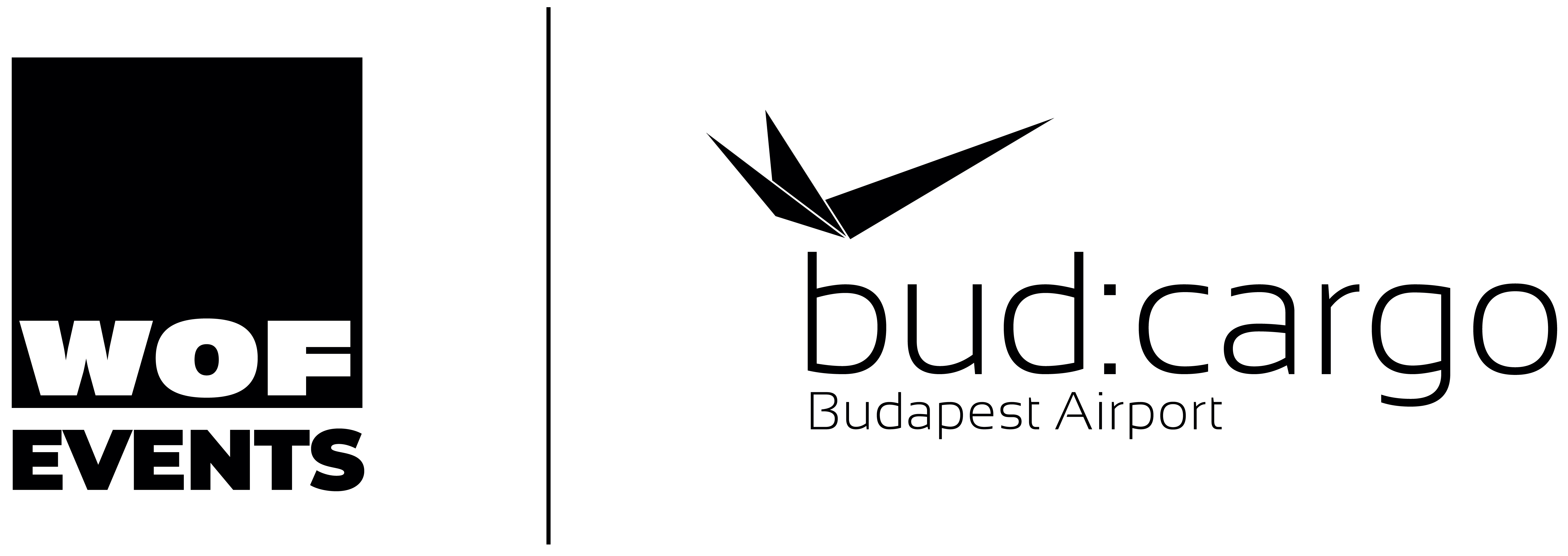INTERVIEW with Géza Fülöp , Managing Director of Qamcom Central Europe
Géza Fülöp is the company’s local manager and project manager at the same time. He started his work in the field of physics, then continued as a research engineer, and worked as a manager at multinational companies at various levels, in the fields of telecommunications, IT, and space industry, mainly in Sweden and Hungary. In the meantime, he discovered the best possible challenge for him: to develop a completely new organization in the heart of Central Europe. Géza obtained a Ph.D. in theoretical physics, but this did not prevent him from enjoying participating in product development, consulting and organizational development tasks. His medium-term plans include reaching 5 kyu in a board game called go and running the marathon in 4 hours.
AI is a big word nowadays. How does Qamcom perceive the integration of artificial intelligence into your logistics systems, and what benefits or challenges do you foresee in this process?
Qamcom is interested in supporting our customers with the sharpest technical tools, AI or non-AI. I mean that Artificial Intelligence is a very broad expression, containing lots of different dimensions. There are also smart solutions that are not considered to be AI-based, for example mathematical optimization and flow analysis. These can add a lot of value in improving a company´s competitiveness, without even mentioning AI.
We think that many types of AI solutions are going to be with us on the long term. Many people think nowadays on NLP (Natural Language Processing) applications in customer service. The emergence of new chat tools based on large language models couldn´t escape anyone´s attention the last months.
But there are many interesting and important dimensions.
One example is the application of computer vision in Quality Assurance both in production and in transportation. Another one could be the next steps in RPA (robotic process automation), where you automate the full documentation flow through the organization. A third example is predictive maintenance of your tools, again both in production and transportation. A very strong and probably influential set of tools will be forecasting. If you can improve the precision in predicting the needs of your customers, you can both gain a lot and minimize your losses.
Some of the benefits of AI are obvious, as there are many efficient tools in this basket. They can replace many human working hours, minimize costly quality problems and optimize resource usage.
The main risks for AI are the same as for any complex tool: if the user doesn’t understand its limits, it will be easy to make wrong decisions. AI will not solve all of our problems, and overly relying on it might be as much of a mistake as not using it.
With the rise of AI across the industry, do you see it replacing programmers in the long run? How do you personally envision the future role of AI in shaping the supply-chain management landscape?
I don’t think AI will replace programmers, but I do believe that it will change their way of working. Already today we have libraries and open-source solutions, so that each programmer doesn’t have to develop everything from scratch. I believe that there will be more of this. Programmers will be able to re-use more and more elements and modules, so their work will resemble more and more the one of the SW or solution architects of today.
I believe that we will come to the point where we will talk about supply networks instead of chains. That expression describes more accurately the complexity of product flows. A lot of decisions will be supported/taken by AI-based systems that can take into consideration much more data, both actual, historical, and predicted. It is difficult to predict much about the competitive landscape. One trend will be that large technical development companies will try to serve logistic companies with software and hardware tools and increasingly more holistic solutions. The other trend would be exactly the opposite: the largest logistics companies will develop their own AI systems and tooling. And to make it even more complex, there will almost certainly exist open-source solutions and smaller companies making a living by customizing solutions to individual customer needs. As technology evolves, we might see waves among different dominating trends. One thing seems sure: supply chain management, as so many other fields, is going to be more data-driven and the ones who will have the best knowledge and the sharpest tools, will have an enormous advantage.
When it comes to managing transportation operations, some find that CRM systems and reporting tools are not adequately developed. Why do you think there’s a reluctance to develop comprehensive software that allows freight forwarders to purchase a single solution for all their needs? Have you been thinking about such an approach at Qamcom?
Our perception is that transportation companies are quite different among themselves, with their own systems, customer base, habits, and business models. A CRM system that would cover all these variations would be immensely complex and difficult to maintain. Modularity is a partial solution. But still, a large CRM developer cannot afford to adapt its modules to each individual customer. Smaller, niche companies, like Qamcom can develop some of the modules and can make individual adaptations. But it doesn´t make sense to develop more full CRM systems. Today it is also difficult to integrate, e.g., an optimization solution into an already existing CRM. The reasons are partially technical but mainly artificial obstacles.
We think that the real win-win-win solution would be something as follows:
Large CRM systems are developed in a modular way with lots of open interfaces. Transportation companies would buy and use these CRM-s and ask smaller developers to integrate individualized modules on the top of the CRM-s. This way the CRM developers would become more like system integrators. The customers would have a solid base to rely on while also getting the adaptations they need. Smaller developers could find their respective place in this ecosystem by responding to these individual needs.
Qamcom has expertise among others, in optimization, SW development, and several areas of AI. The way forward for us is not to try to develop one more complex CRM system. Instead, we aim to build modules and independent tools within the areas of our expertise to complement existing tools and solutions.
We firmly believe that cooperation and openness between the actors in the transportation business is the way forward.
Géza, what can you tell us from your observation and experience about current market trends in the countries of CEE in particular?
Logistics is a multi-faceted industry. There are lot of major challenges and also opportunities at the same time. We understand this year as more difficult than the last one for many firms in this space. Several national economies in the region are struggling, there are places with high inflation, the protracted war casts a vast shadow over many sectors, and fuel prices are unstable, so it is not an easy period for many.
What we at Qamcom perceive most clearly is the attitude towards innovation at different actors. We see large differences. There is a bunch of companies way ahead, embracing technical innovation, meaning digitalization, data-driven decision-making, use of AI tools. etc. However, many of these companies do not originate from the CE region. On the other side of the scale, we see actors who are hesitant to try new technologies. In some cases it is a lack of capital, in other cases lack of trust or lack of knowledge and information on what and how to step forward. We (I mean all technology companies) could also improve in demonstrating the concrete, computable value of new solutions. Missing this piece of the puzzle prevents smaller companies from investing.
There is one more trust issue that we perceive in some cases. If we take the transportation market as an example. There are a few big haulage companies, a larger number of mid-size ones, and zillions of small ones with just a few trucks. These small companies have no capital to finance the introduction of new tools, often not even as SaaS. If they would work together, let’s say ten small firms, they could make a lot of improvements and investments that they can’t afford by themselves. Unfortunately, the fierce competition and the lack of trust prevent many of these players from joining forces and do something together.
All in all: technical innovation is happening, and it is already a major factor in lifting some of the haulage companies above the average.
When it comes to growth, what strategy does Qamcom hold on the integration of an existing organization versus starting new ventures from scratch? Are you planning on acquiring any smaller players or merging with another to grow stronger in the near future?
Our primary growth strategy in Central Europe is mainly organic. Qamcom believes that a mid-size consultancy company with a finite area of very deep competencies has a valid place in the market. On the other hand, one should never say never: the Qamcom group consists of 25 fully or partially owned companies, some of them spinoffs from existing ones, some purchased. Predicting is difficult, with or without AI…

Qamcom is a leading research and technology company with deep competence within hardware, software and system development.

